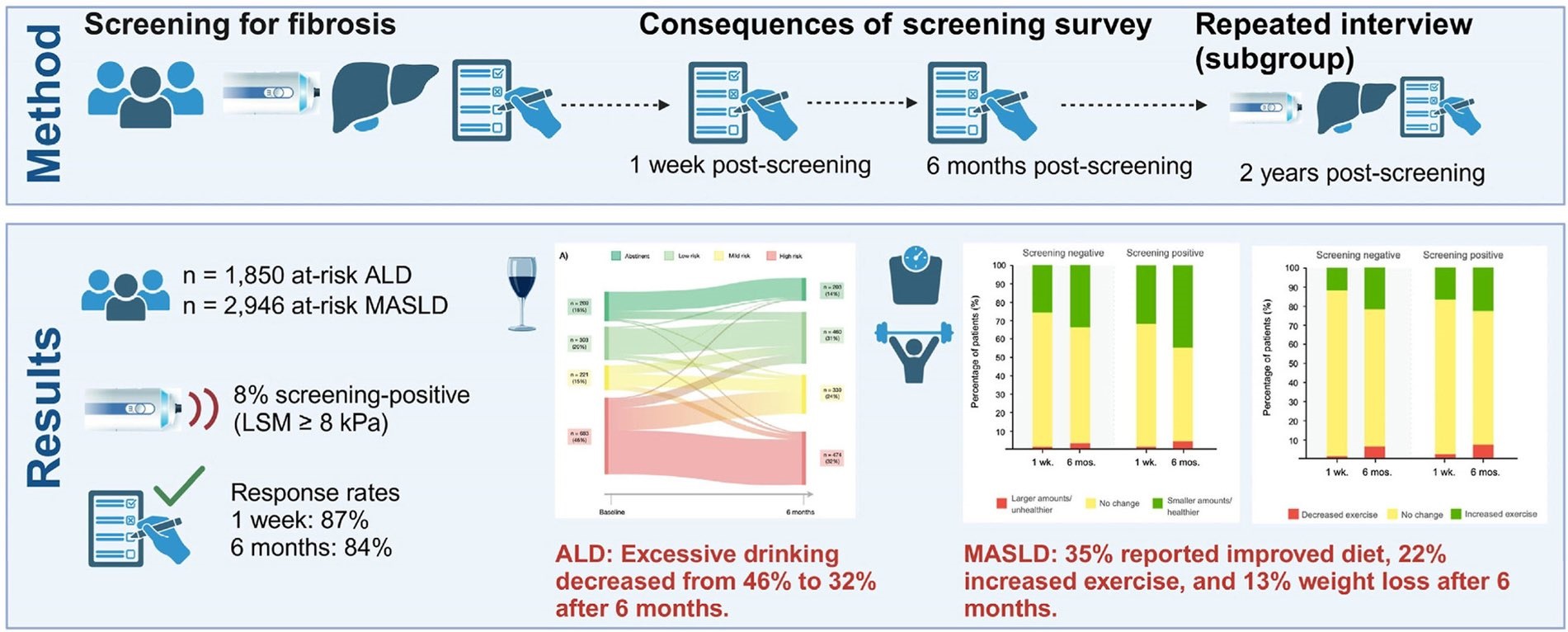The Impact of Liver Fibrosis Screening on Lifestyle Changes and Disease Prevention
The global health landscape is currently facing a surge in cases related to lifestyle diseases, with staggering figures indicating that 100 million people are affected by excessive alcohol use, over 450 million by type 2 diabetes, and 600 million by obesity. This rising trend is set to increase the prevalence of alcohol-related liver disease (ALD), metabolic dysfunction–associated steatotic liver disease (MASLD), and their intersection, known as MetALD. With more than one in ten individuals at risk showing significant fibrosis, the urgency for effective interventions is clear.
Recognizing the crucial need for early intervention, major hepatology associations such as the American Association for the Study of Liver Diseases and the European Association for the Study of the Liver have endorsed targeted screening for liver fibrosis within at-risk groups. This proactive approach aims to halt the progression of liver diseases at an early stage, significantly improving patient outcomes. Notably, interventions like weight loss and alcohol rehabilitation have demonstrated substantial benefits in reducing fibrosis and the risk of disease progression, particularly when initiated before liver functions severely decline.
This backdrop sets the stage for evaluating the effectiveness of liver fibrosis screening through transient elastography (TE), particularly focusing on its potential to instigate positive lifestyle changes among those at risk for ALD or MASLD. A recent comprehensive study involving 4796 at-risk individuals has provided insightful findings into the role of targeted, population-based liver fibrosis screening.

Key Findings of the Study
The study reveals that liver fibrosis screening correlates with notable improvements in self-reported alcohol intake, diet, exercise, and body weight among participants:
- Alcohol Consumption: Almost half of the participants at risk of ALD reported either achieving abstinence or reducing their alcohol intake within six months of screening.
- Diet and Exercise: More than one-third of participants at risk of MASLD adopted healthier dietary habits or increased their physical activity, with 13% reporting weight loss exceeding 5% of their body weight.
Interestingly, the improvements were not limited to those who tested positive for elevated liver stiffness, challenging the hypothesis that negative screening results might lead to worsened lifestyles.
Global Implications and Local Impact
This study is the first to investigate global lifestyle changes following liver fibrosis screening across various spectrums of steatotic liver disease, making it a groundbreaking addition to the limited research available in this field. The findings suggest that liver disease screening could serve as a stronger motivator for lifestyle improvements compared to screenings for other chronic conditions like diabetes and cardiovascular disease.
Considerations and Recommendations
While the study presents promising outcomes, it acknowledges potential limitations such as selection, recall, and attrition biases that could affect the validity of the results. Furthermore, the impact of external factors such as the COVID-19 pandemic on lifestyle changes cannot be overlooked.
Given these insights, it is recommended for individuals experiencing symptoms or those at risk of liver diseases to seek early screening and medical advice. Dr. Christos Zavos, a board-certified gastroenterologist and hepatologist based in Thessaloniki, Greece, provides comprehensive care and advice for patients dealing with these conditions. For personalized consultation and further information, patients are encouraged to contact Dr. Zavos through the peptiko.gr website, call (+30)-6976596988 or (+30)-2311283833, or send an email to czavos@ymail.com.
Conclusion
Liver fibrosis screening stands out not only as a diagnostic tool but also as a pivotal intervention that motivates at-risk individuals to adopt healthier lifestyles, thereby acting as a preventive, diagnostic, and therapeutic measure. This dual benefit underscores the importance of integrating such screenings into routine clinical practice to address the growing burden of liver diseases worldwide.
Reference
- Kjaergaard M, Lindvig KP, Thorhauge KH, et al. Screening for Fibrosis Promotes Lifestyle Changes: A Prospective Cohort Study in 4796 Individuals. Clin Gastroenterol Hepatol 2024;22:1037-1047.e9.
